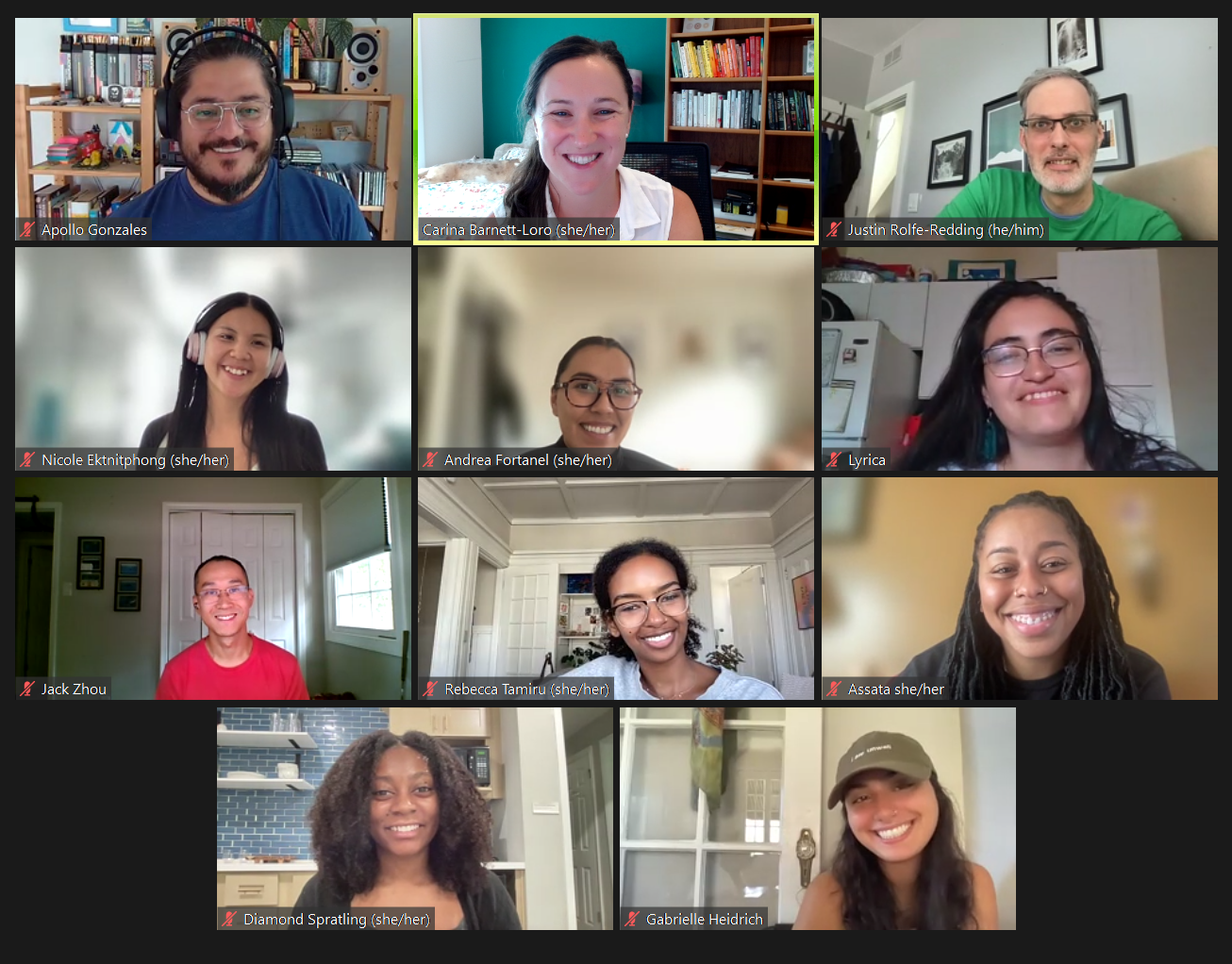Dear Lab members and supporters,
2023 was another year of exciting growth, transition, and impact for the Climate Advocacy Lab. Most notably, Apollo joined our team in August as the Lab shifted to a Co-Director model! Two years into our strategic plan, a commitment to multiracial, cross-class (MRXC) climate organizing continues to guide the Lab’s work – from research on MRXC coalitions to our support for strategic partner organizations and regional training cohorts for emerging climate leaders. The generational opportunity of IRA implementation also helped sharpen our focus, especially in supporting Lab members to ground their work in strategies and tactics that will build the climate movement’s overall power.
We are continually impressed by the passion, curiosity, and commitment of the Lab's members to powerful climate organizing; appreciative of our funder collaborative for their generous, ongoing support of our work; and proud of our team for showing up to serve the movement with such brilliance, intention, care, and joy.
In solidarity,
Apollo & Carina
Co-Directors
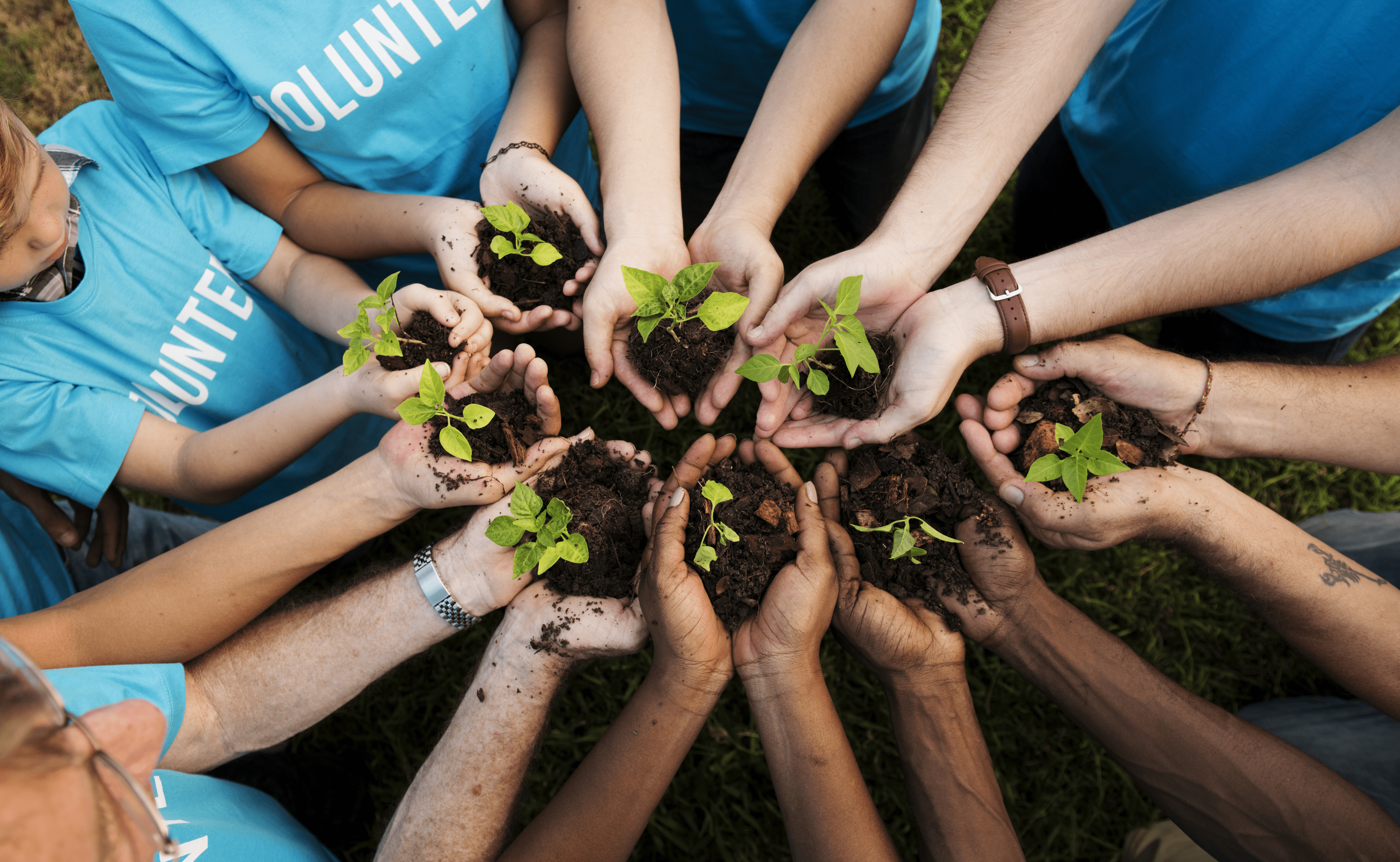
We synthesized RESEARCH & distilled key INSIGHTS to answer advocates’ questions.
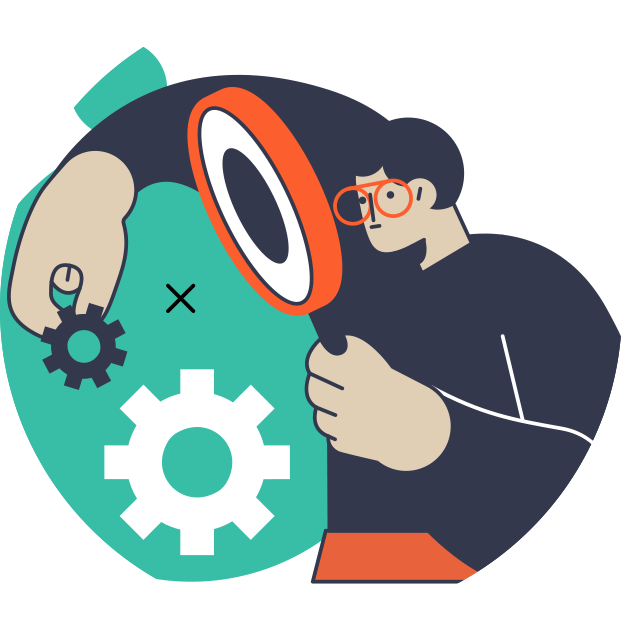
The climate movement landscape continues to evolve rapidly, generating new questions for advocates about how to move our work forward most strategically. Last year, the Lab’s research team invested in both our “rapid response” research work to answer emerging questions, as well as tackling some of the stickiest and most complex ones around effective coalitions. We also continued to build the base of insights around what’s working to win and implement equitable solutions, moving over $100,000 to partner organizations through our Climate Justice Microgrant program.
19
Recommendations for supportive effective coalitions participants laid out in the Lab’s new Blueprint for a Multiracial, Cross-Class Climate Movement report
7
Climate justice microgrant partners who documented lessons learned from organizing campaigns across the country
OUR IMPACT
Blueprint for a Multiracial, Cross-Class Climate Movement
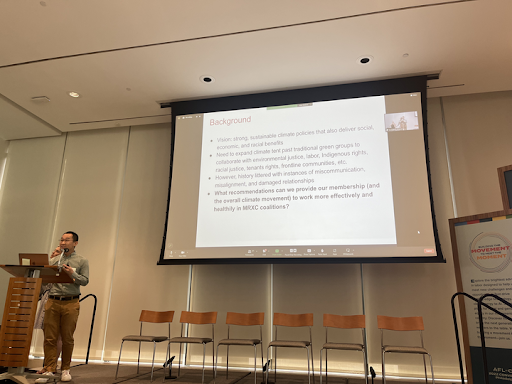 Last Fall, the Lab embarked on an ambitious research project focused on understanding what structures, processes, and practices support effective and healthy multiracial, cross-class climate coalitions, with the goal of creating a “blueprint” report detailing key insights as well as a workbook to support advocates in integrating learnings. Our research team focused on five recent campaign case studies that felt illustrative of these conditions: the Climate and Equitable Jobs Act (IL), Line 3 pipeline fight (MN), Climate Leadership and Community Protection Act (NY), the Portland Clean Energy Fund (OR), and WA’s carbon tax ballot initiative.
Last Fall, the Lab embarked on an ambitious research project focused on understanding what structures, processes, and practices support effective and healthy multiracial, cross-class climate coalitions, with the goal of creating a “blueprint” report detailing key insights as well as a workbook to support advocates in integrating learnings. Our research team focused on five recent campaign case studies that felt illustrative of these conditions: the Climate and Equitable Jobs Act (IL), Line 3 pipeline fight (MN), Climate Leadership and Community Protection Act (NY), the Portland Clean Energy Fund (OR), and WA’s carbon tax ballot initiative. Key learnings:
- Build trust and clarity among the collective. Coordination and communication in coalitions is difficult, especially when participants are coming from disparate political perspectives, personal assumptions, and ways of working. Taking time to build trust on the front-end (and continue making time for relational work) can provide a "buffer" of good faith when the going gets tough.
- Develop clear and effective internal processes for decision-making and information-sharing. that work for their members. This means clarity around major concepts like defining how a coalition’s values of equity and inclusion are translated into decision-making, as well as smaller topics like how meetings are scheduled, who’s responsible for taking notes, and even where members should go to find the latest updates.
- Have a plan in place for managing and working through (inevitable) conflict. Past disputes or breaches of trust need to be directly acknowledged and addressed in order for the coalition to function at its best – it’s wishful thinking to believe that conflict can simply be ignored.
Nearly 50 climate leaders attended a series of Lab community conversations on the Blueprint last fall, sharing positive feedback on the report and its utility in the context of their coalition work:
- “Having managed two statewide coalitions over the past couple of years, I found the Lab’s Blueprint report and workbook to be filled with insightful information, research, and tools I will definitely be drawing on in my work."
- "I just started looking through your report and it is incredible. What a gift to our movements. As you may know, I have been doing coalition work for many years and have shared a lot of the same recommendations to different spaces. This is such a tangible tool for those of us that are striving for this functionality in our work."
- "The themes and associated recommendations were hugely helpful, as is the workbook to support application. I have been wishing for this type of guidance for so long!"
Fairbanks Climate Action Coalition
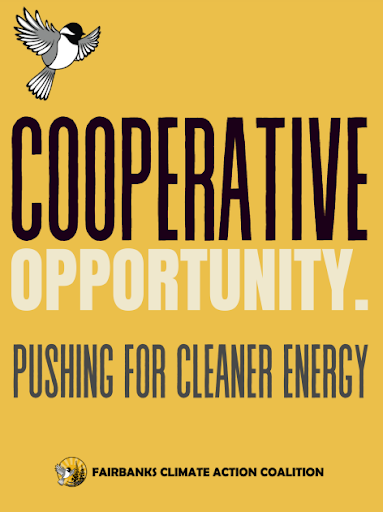 Fairbanks Climate Action Coalition was one of 7 participants in our 2022-2023 climate justice microgrant cohort. They used their grant to develop a report capturing learnings from ongoing campaign efforts to push their local electric cooperative, Golden Valley Electric Association (GVEA) toward clean energy.
Fairbanks Climate Action Coalition was one of 7 participants in our 2022-2023 climate justice microgrant cohort. They used their grant to develop a report capturing learnings from ongoing campaign efforts to push their local electric cooperative, Golden Valley Electric Association (GVEA) toward clean energy.
Key learnings from the GVEA campaign:
- We’re all in this together, so foster the “we” – it’s not “us” versus “them”
- Consistency is key - keep showing the utility that you’re invested long-term in shared success
- Provide the public with tools to increase their confidence in and skillset to engage in the process
- Always focus on increasing member-owner engagement and action
“This project gave our team a chance to reflect and helped us identify a list of tangible tactics that have led to past successes and that we can now pull from for future work. It also gave us the opportunity to discuss some of the challenges we face as a volunteer-led climate advocacy organization. Having a comprehensive report of the Golden Valley campaign will make it easier to talk about the work to new people and bring them into our future efforts.
Doing this project allowed a chance for our group to reflect on and celebrate our wins. When doing climate justice work, it can often feel frustrating that things aren't changing as quickly as we'd like and we often don't take time to celebrate the small successes along the longer path. Having conversations for this project really documented how much we have achieved and gave us a chance to appreciate each other's efforts and achievements. It reinvigorated us to keep going!”
—Kenzley Delfer (Energy Justice Organizer, Fairbanks Climate Action Coalition)

We built skills, capacity, and connections through TRAINING.
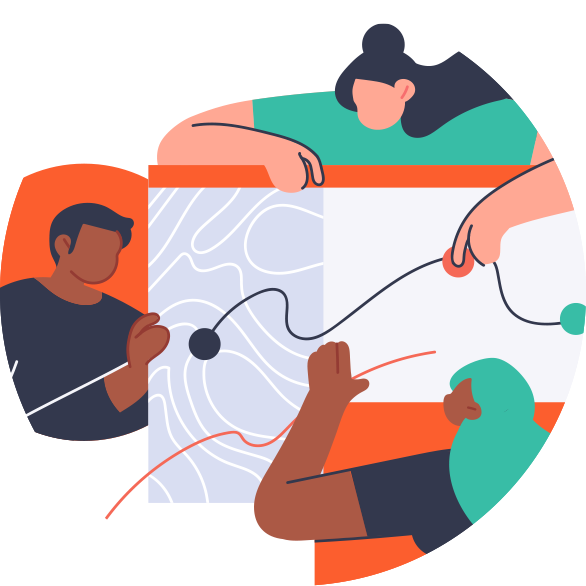
The Lab doubled down on our commitment to training this year, investing in growing the skills and leadership of early-career organizers in the Southwest and Midwest as well as advocates working at the intersection of climate and health. We also continued to offer trainings for the broader Lab community across a range of topics from climate justice messaging strategies to pairing innovative digital tactics with direct action.
14
Content modules covered as part of TFI, from "Tools to Strengthen Facilitation and Conflict Management Skills" to "Workshopping Your Organization's Ladder of Engagement"
OUR IMPACT
Spring TFI: Texas & the Southwest
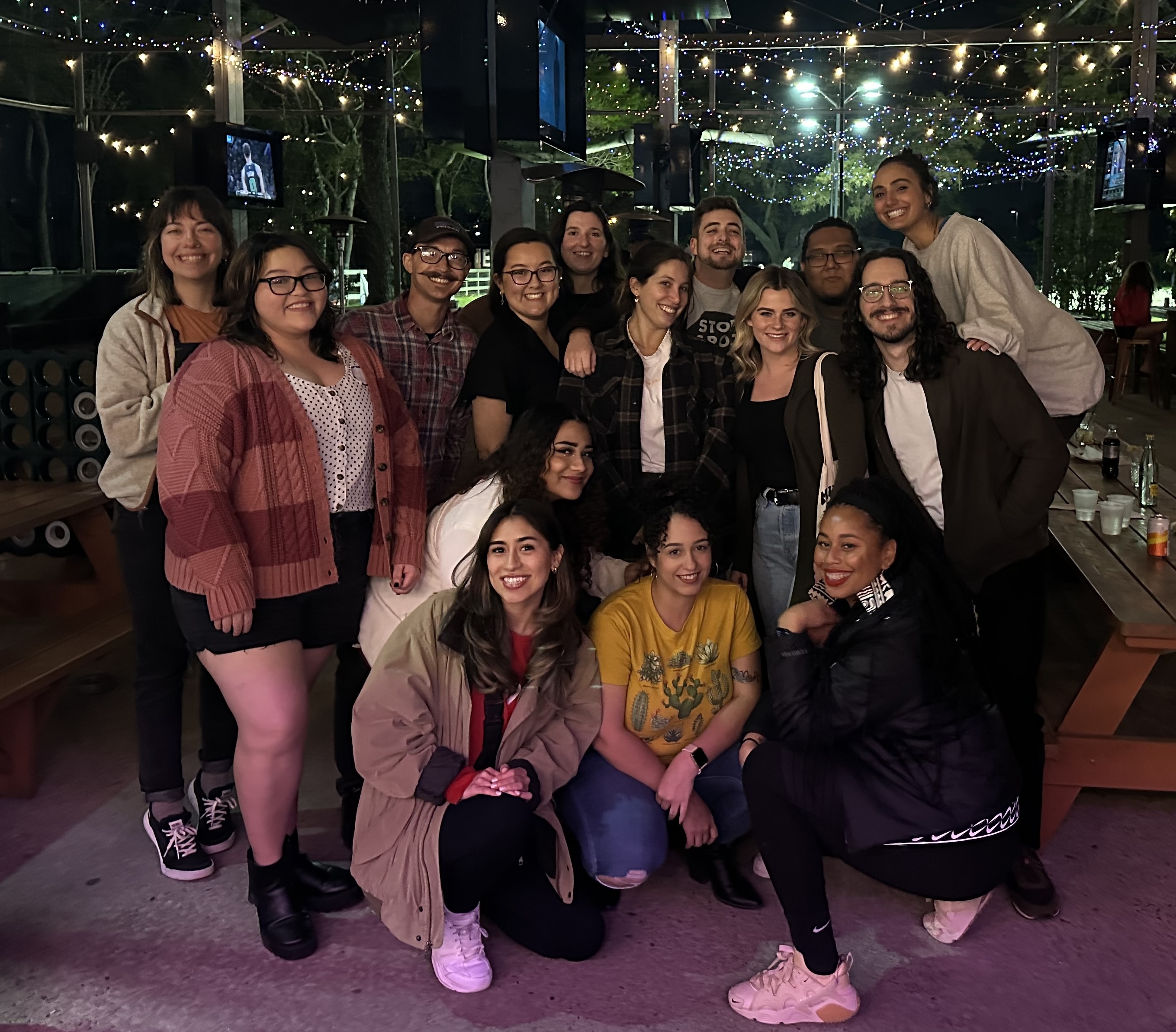 18 early-career climate organizers from Arizona, Colorado, Nevada, and Texas participated in our spring Training For Impact (TFI) cohort, which kicked off with an in-person meet up in Houston.
18 early-career climate organizers from Arizona, Colorado, Nevada, and Texas participated in our spring Training For Impact (TFI) cohort, which kicked off with an in-person meet up in Houston. Key learnings:
- In-person kick-off strengthened relationships and deepened participant commitment. Previous TFI cohorts had met virtually, due to the pandemic, so this was the first cohort where we were able to safely bring participants together in person. We noticed a qualitative difference in the depth of relationships between cohort members, as well as more active, sustained engagement.
- Dedicated time for "integration" of skills increased impact. We piloted a new approach this year, where participants met twice a week (Tuesday/Thursday), every other week over 3 months. Tuesday sessions were focused on sharing new insights and/or skills while Thursday sessions were focused on application. This space allowed folks to immediately integrate learnings and tools into their existing work flows and created space for real-time problem-solving and peer-to-peer discussions.
- Regional focus supported peer learning and campaign cross-pollination, during and after the cohort. Organizers were able to break out into state-specific groups to troubleshoot questions and challenges emerging as a result of their particular political and socioeconomic landscape. This regional focus also allowed for continued relationship-building outside of Lab programming, where participants were able to connect with each other at actions, lobby days, or other community events.
“Through the TFI opportunity, I have seen tremendous growth in my individual strategic capacity. I now possess a stronger ability to think ahead, lay out tasks, and confidently plan action items. This newfound empowerment has elevated my skills and effectiveness as a field organizer, including helping me embrace a major shift in my role and adapted to reaching out to a different demographic— landowners and individuals from diverse backgrounds. Tools and skills such as the ladder of engagement have helped me feel more confident and capable of recruiting new people into the movement and supporting the development of our leaders and volunteers. I now understand that open communication and handling internal conflicts are essential for successful collaboration and impactful work."
- Alyssa Wallace (Field Organizer, Commission Shift)
Fall TFI Cohort: Midwest
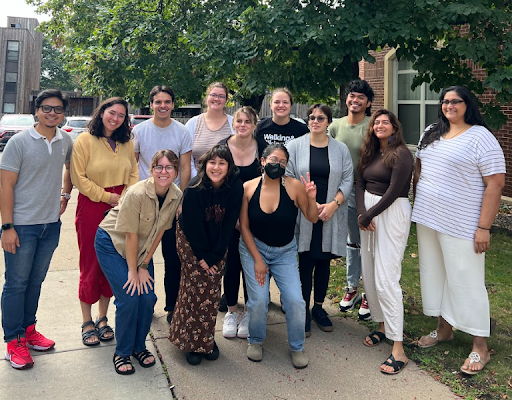 19 early-career climate organizers from across the Midwest, including Illinois, Indiana, Michigan, Minnesota, Ohio, and Wisconsin participated in our fall Training For Impact (TFI) cohort, which kicked off with an in-person meet up in Minneapolis.
19 early-career climate organizers from across the Midwest, including Illinois, Indiana, Michigan, Minnesota, Ohio, and Wisconsin participated in our fall Training For Impact (TFI) cohort, which kicked off with an in-person meet up in Minneapolis.
Key learnings:
- Leadership assessments early in the cohort helped participants hone in on strengths and growth edges. Cohort embers identified their leadership style, such as a "process" or "strategic" leader. Participants appreciated that this activity both because it gave them language to describe their own leadership style as well as a the reassurance that all styles are valuable and important to our movement work.
- Accessible, applicable "homework" assignments are a good tool to support learning between sessions. Through this cohort, participants reflected that homework assignments were helpful and a great way to receive feedback from the Lab training staff, but that having assignments all in one place, like a workbook, would be even better. Moving forward, we are going to put together a “workbook” full of the application worksheets that we are asking participants to complete during and after each application module that will help participants stay more organized while completing assignments.
- Create a safe, joyful, and supportive space. Prioritizing fun, community-building events both early in and throughout the cohort — from whirley ball to bowling to silly meme ice breakers — helped building a strong, supportive container for deep and raw conversations later on. When the cohort reached modules that dealt with more personal issues, like conflict management and the challenges of working in non-profit organizations, we saw that participants felt safe and comfortable enough with their peers to speak authentically and candidly about their experiences.
“One of the most significant learnings for me has been the distinction between good and bad strategy. Prior to this training, I lacked the clarity to discern effective strategies from ineffective ones. The cohort has equipped me with the knowledge and skills to not only identify, but also implement strategies that drive impact. The homework assignments have been so valuable, providing a structured approach to implementing what I learned during the module. I've shared these materials with my team, fostering a shared understanding and enhancing our collective ability to implement campaign efforts more effectively.
The cohort has been transformative in addressing imposter syndrome, providing a supportive environment where I can embrace my role as a strategic leader. Through this experience, I have gained confidence and learned to navigate the complexities of organizing. The program's emphasis on institutional knowledge has been particularly relevant to my work. We face challenges due to a lack of community organizing history and institutional memory. The training content has empowered me to initiate ongoing education efforts, ensuring that our community remains informed and engaged.”
- B. Rosas (Policy Manager, Climate Generation)
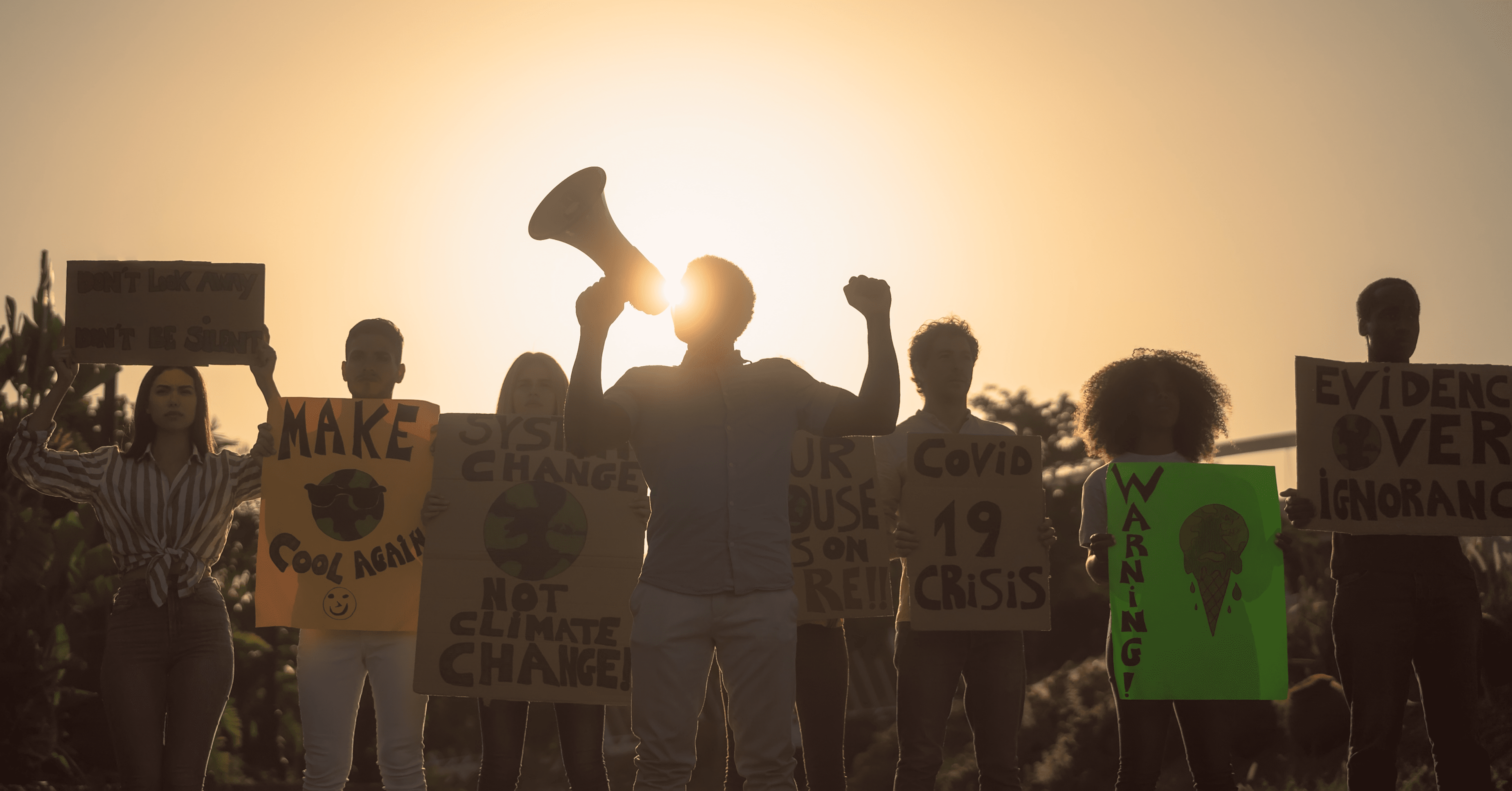
We supported climate organizations building multiracial, cross-class power through strategic PARTNERSHIPS.
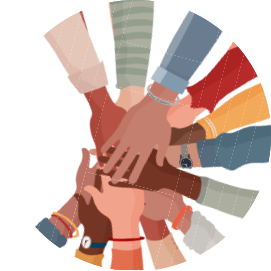
The Lab's Partnerships Program supports multiracial, cross-class climate organizations in applying insights from the most instructive, winning campaigns and generating lessons learned about what it takes to win and implement climate justice solutions. The Lab team offers partner organizations 1-on-1 coaching, individualized trainings, facilitation support, as well as feedback on campaign, communication, and organizing documents. In 2023, we solidified partnerships with a diverse mix of organizations, including Asian Pacific Environment Network, Center for Popular Democracy, Energy Democracy Project, NC Climate Justice Collective, NY Renews, and US Climate Action Network.
6
Strategic partner organizations supported by the Lab's Partnerships Program
13
Leaders from those organizations who received 1-on-1 coaching and support
13
In-person trainings and virtual webinars offered for partners, on topics including campaign strategy
10
Learning partner organizations with whom we collaborated to support stronger climate movement infrastructure!
OUR IMPACT
Energy Democracy Project
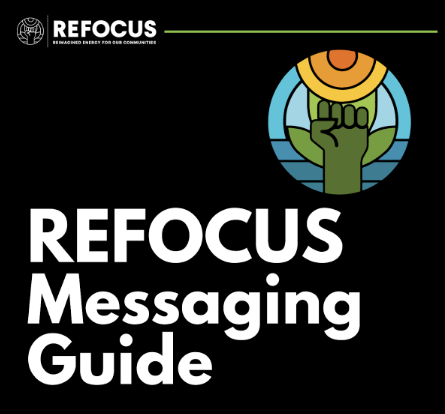
The Lab supported Energy Democracy Project (EDP)'s work to develop a public narrative around energy democracy that activates people across race and class, as well as efforts to train and leverage their network as the main messengers of that narrative.
The Lab worked with EDP to facilitate focus group research around energy issues, helping them to better understand their audience's knowledge and behaviors and what inspires them to take action. This research contributed to a new Messaging Guide, which is aimed at unifying diverse, local, and frontline organizations and putting power back in the hands of the people.
Key learnings:- Leverage local energy issues and images as part of broader energy democracy narrative. The focus group research revealed that EDP's audience had difficulty defining “energy democracy” and “decentralized energy" and, in particular, how it relates to energy and utility companies. EDP found that showing images and reading statements related “energy democracy” and “decentralized energy” look like was effective in helping focus group participants to connect higher-level concepts with their local energy/utility context.
- There's power in synergy and collaboration across the movement support ecosystem. Through our partnership work, the Lab helped connect Energy Democracy (EDP) with other movement support organizations that possess specialized expertise around narrative and messaging, including We Make the Future. This collaborative approach allowed us to provide EDP with deeper , mores specialized support, while simultaneously strengthening connective tissue across the ecosystem of climate movement support organizations.
“There’s been so much that has changed about the way EDP organizes as a result of working with the Climate Advocacy Lab! The weekly coaching and support allowed us to build the REFOCUS campaign based on a wealth of knowledge and lessons learned from across the climate movement. The biggest area of growth in 2023 centered on the ways in which we approach the development of messaging.
We knew we needed to refine our messaging if we wanted to build a broad base of support for energy democracy, and that we needed to talk with more people outside the energy democracy bubble. The Lab team's guidance around focus group design and facilitation support was central the project's success, including a deeper understanding of how EDP's messaging landed with our target audience. The findings informed a new direction for our narrative work, including the our Messaging Guide that helped fill a critical need voiced by our Project Collaborators.
Over the past year working with the Lab, I was able to build relationships and learn from climate organizers outside of the energy space. As a result, I feel less isolated and affirmed that our challenges don’t exist for us alone, with a greater understanding that we can learn from other groups who have overcome similar challenges."
— Selena Feliciano (National Campaign Coordinator, Energy Democracy Project)
NY Renews
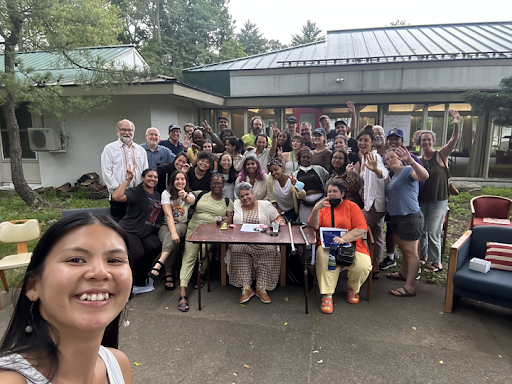 Building on the historic win of the Climate Leadership and Protection Act and years of campaigning experience, the Lab's partnership work with NY Renews is focused on helping them maximize strategic capacity and coalitional power to ensure a just transition for workers and a healthy, equitable, and accessible green economy for all.
Building on the historic win of the Climate Leadership and Protection Act and years of campaigning experience, the Lab's partnership work with NY Renews is focused on helping them maximize strategic capacity and coalitional power to ensure a just transition for workers and a healthy, equitable, and accessible green economy for all.
Key learnings:
- Facilitating alignment and healthy coalition dynamics over time requires ongoing attention. NY Renews came together in 2015, as a result of organizing efforts for the People's Climate March. Working closely with their team has underscored the powerful and important role coalition's play in our work, as well as the considerable effort required to nurture effective ways to work together across difference and maximize impact, year after year — including in-person time, like at their annual retreat.
- Importance of gathering baseline data to understand current practices. We needed to assess current utilization level of evidence-based practices, including around grassroots policymaker contact, in order to understand (1) what targeted training and ongoing support for implementation would be most valuable as well as (2) what impact measurement mechanisms we would need to put in place to evaluate adoption of best practices across the coalition for both NY Renews staff and leaders of member organizations.
“In 2023, NY Renews was able to launch new projects with greater clarity and evidence-based research as a result of our partnership with the Climate Advocacy Lab. In particular, the Lab's support was critical to the success of this year’s NY Renews Steering Committee Retreat, which created a much-needed space to reflect pause after a busy legislative session and gather lessons to take forward into upcoming campaign cycles. Nicole brought a mixture of disciplined preparation and flexible facilitation that led us to a more strategic outcome. Having outside expertise supported us in honing our internal process and applying razor-sharp focus on our shared outcomes.
The Lab team has also been super helpful in linking NY Renews up with resources about policy maker contact when we were designing our "Adopt a Legislator Program" and then digging into some of the resources to pull out key best practices that we want to educate our members on and track their uptake on over time. This allowed us to both share the best evidence backed methods AND track whether our coalition members are actually adopting this knowledge over time.
The Lab has also connected with us other movement support partners, including the Digital Climate Coalition and the Solutions Project, and that wrap-around support has helped us develop systems for tracking and measuring earned media and digital data, as well as building out our digital strategy program for coalition members."
—Xaver Kandler (Campaigns Director, NY Renews)
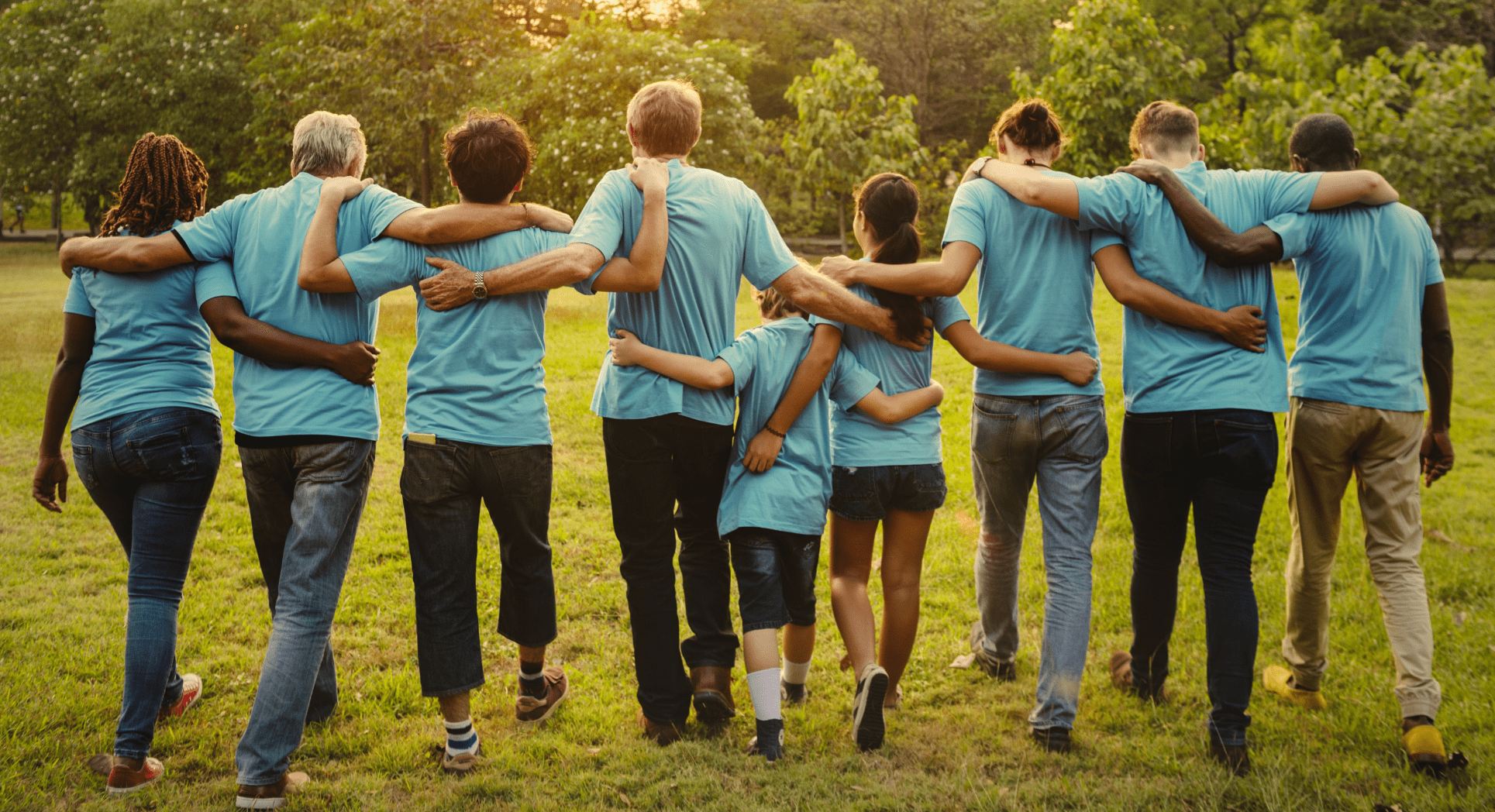
We strengthened COMMUNITY and supported collaboration.

The Lab continues to play a critical role in strengthening "connective tissue" across the climate movement, holding space for a vibrant, interdisciplinary, and generous community of practice. Virtual convenings, in-person events, and our growing Slack community created opportunities for relationship-building, reflection, and sharing across the Lab community – the largest, permanent network of climate advocates in the US.
4,087
Individual Lab members from more than 1,700 organizations & institutions
596
New members added to the Lab in 2023
119
Members who participated in a peer learning conversation or in-person social
357
Lab members who joined our Slack community
OUR IMPACT
Lab Community Slack
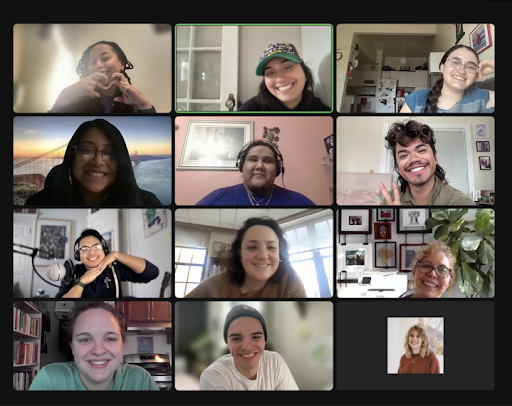 The Lab launched our Slack community in the fall of 2022, and watched it grow tremendously over the course of last year, now made up of 550 of our most active members.
The Lab launched our Slack community in the fall of 2022, and watched it grow tremendously over the course of last year, now made up of 550 of our most active members.
Key learnings:
- Proactively introducing new Lab members supported a warm, welcoming environment. A majority of members reported that they had "made a new relationship" and/or "broadened their network" as a result of being part of the Lab Slack.
- Lab members are incredibly responsive (and helpful!) — especially when we tag them in conversations. In the beginning, Lab staff had a process for tagging other members who might have good insights or connections. However, as the community grew and members became more familiar with the platform and each other, we saw more and more members proactively responding to questions and even tagging other people in the Slack that they knew who might have thoughts.
- Members are coming to Slack to #ask questions and seek #collaboration partners. These channels were by far the most popular and active! We also received lots of great feedback from Lab members that they were the most valuable, in terms of making new connections and finding resources relevant to their work.
“The Climate Advocacy Lab has been an indispensable resource for me and my go-to channel for finding help when I need it. I think it fulfills a very important role in movement-building by helping people connect with each other and ask each other for guidance. Through the #asks channel in the Lab Community Slack, I have connected with at least 20 individuals on various topics, receiving amazing advice and fostering collaborations. I've even found my current research mentor indirectly through CAL's networks!
Through the Slack community, I have been able to schedule numerous one-on-one calls with people across the country who are eager to help me with my coalition building work and share their own experiences. I think one of the major issues in the climate movement is the presence of silos and lack of collaboration, and the Climate Advocacy Lab does a wonderful job of bridging these gaps. I have also used a couple of the resources, trainings, and reports online like Organizing 101 and the one about moving legislators and the one about cross-class multiracial movement building, which have been helpful too and I have adapted some into my own organization's trainings. If I ever encounter a problem or have a question about climate-related stuff, my first instinct is to post in the Lab Slack because I know somebody will have a thorough and insightful answer and be excited to help!”
- Felicia Wang (Hub Leader, Sunrise Durham)
A big thank you to all the Lab members and strategic partners with whom we worked in 2023 -- with special appreciation to everyone who's work and reflections are featured in this report, including our friends at Fairbanks Climate Action Coalition, Commission Shift, Climate Generation, Energy Democracy Project, NY Renews, and Sunrise Durham.
Please reach out you are interested in exploring strategic partnership with the Lab or learning more about how to support our work!
All our best,
Andrea, Apollo, Assata, Carina, Diamond, Gabby, Jack, Justin, Lyrica, Nicole, & Rebecca
